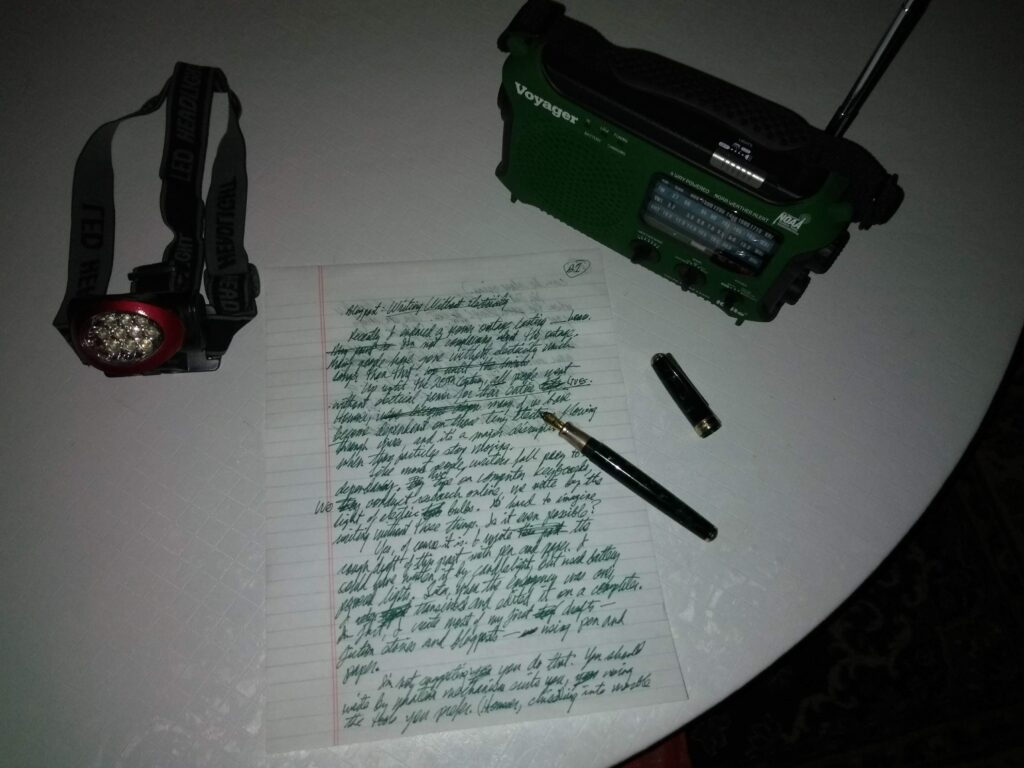Recently I endured a power outage lasting over 38 hours. I’m not complaining about the outage. Many people have gone without electricity much longer than that.
Up until the dawn of the 20th Century, all people went without electrical power for their entire lives. However, many of us have become dependent on those tiny electrons flowing through wires, and it’s a major disruption when those particles stop moving.
Like most people, writers fall prey to this dependency We type on computer keyboards, we conduct research online, we write by the light of electric bulbs. It’s hard to imagine writing without these things. It is even possible?
Yes, of course it is. I wrote the rough draft of this post with pen and paper. I could have written it by candlelight, but used battery powered lights. Later, when the emergency was over, I transcribed and edited it on a computer. In fact, I create most of my first drafts—fiction stories and blogposts—using pen and paper.
I’m not suggesting you do that. You should write by whatever mechanism suits you, using the tools you prefer, when available. (Note: chiseling words into marble can be slow going).
All I’m saying is that you shouldn’t lose hope when the power goes out. You can satisfy your urge to write by different means.
You might even enjoy the pen-and-paper method. Freed from the computer, your writing might take a different direction. You might write about different subjects or explore new tones, settings, characters, or themes.
When the power comes back on, you can revert back to your accustomed methods. But you’ll always know you have a reliable backup.
The electricity’s back on here, but who knows when it will go out again? At least a simple power outage won’t slow down writing progress for you or for—
Poseidon’s Scribe

